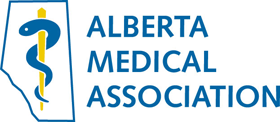CALL ME – Canadians Alleviating Loneliness and Longing by Mingling with the Elderly
Emerging Leaders in Health Promotion grant program

Contributed by:
Vanda Killeen, BA, Dip Ad/PR | Senior Communications Consultant, AMA Public Affairs
ABOUT the ELiHP grant program
The Emerging Leaders in Health Promotion (ELiHP) grant program provides funding to help medical students and resident physicians conceive and implement health promotion projects in support of the development of their CanMEDS/FM core competencies, particularly health advocacy.
Jointly sponsored by the Alberta Medical Association’s Health Issues Council and the Canadian Medical Association, the ELiHP grant program facilitates the growth of physician leadership and advocacy skills in a mentored environment while enhancing the well-being of the general Alberta population through education, advocacy and community service.
Text me on my cellphone … Better yet, just CALL ME
With their CALL ME (Canadians Alleviating Loneliness and Longing by Mingling with the Elderly) ELiHP project, co-leads Dr. Nabeela Nathoo and Dr. Omar Damji put a Calgary spin on a UK-based study of the positive effects of a telephone befriending service on the physical and mental health of older adults (65 and older).
The UK study (Cattan et al., 2011) examined the effect of this telephone befriending service “on social interaction among older people and their self-defined general sense of well-being.” In their paper, the UK team noted the short-term, positive effect the service had on the “state of loneliness in older adults.” The study also reported other positive results, such as participating adults feeling that “life was worth living; that they had a sense of support and that their loneliness and anxiety were alleviated …” This contributed to the prevention of many related areas of potential long-term sequelae.
Could it be that simple? Telephone + medical student + elderly person = less loneliness
“Currently, the Canadian literature in this area is sparse,” said Dr. Nathoo. “We hypothesized that the implementation of a telephone befriending service here, in Calgary, would enable the development of personal skills and supportive social environments, ultimately alleviating feelings of loneliness and its related numerous adversities.”
Beginning in May 2016, Drs. Nathoo and Damji recruited 12 adults, 65 or older, from Calgary’s Alex Seniors’ Health Centre. They paired each participant with a volunteer medical student from the University of Calgary’s Faculty of Medicine 2017-18 class. For a one-year term, students made calls lasting approximately one hour once a week, at pre-scheduled times.
In their ELiHP project final report, Drs. Nathoo and Damji concluded: “Based on our preliminary results, our data suggests that a telephone befriending service to combat loneliness and isolation in the elderly is feasible and may reduce loneliness in the elderly.”
The project co-leads plan to extend the project “in order to recruit more participants to further elucidate the effect …” They’d also like to “delineate if there is any biological secondary benefit that relates to experiencing less loneliness and overall feeling a greater degree of happiness and belonging in society.”
Mentorship
Mentorship is a key component of the ELiHP grant program, as mentors help guide the planning and implementation of the projects with their experience and knowledge. Mentors help connect project leads with the people and places/facilities they need to liaise with to carry out many of their projects. For their CALL ME project, Drs. Nathoo and Damji received guidance and assistance from Dr. Karen Fruetel, a geriatrician and vice-chair of education for the Department of Medicine at the University of Calgary’s Cummings School of Medicine. Dr. Fruetel is also a master teacher in the Undergraduate Medical Education program.
“Dr. Fruetel’s years of commitment to geriatric medicine and her vast network of fellow physicians and allied staff were invaluable to our ability to network with the other essential partners in this project,” commented Dr. Damji, adding: “Dr. Fruetel was instrumental in guiding us through project design and feasibility and connecting us with the Alex Clinic. She also helped us delineate between immediate and long-term clinical correlation at the completion of the study.”
Project and leadership value
For the two young physician project leads, this landline telephone-based project was an eye-opener with respect to the ability of simple and rather archaic methods that have been in society for many years (i.e., the use of a telephone) to act as a source of intervention. “This project taught us to consider the social and psychological aspects within the bio-psycho-social model and tease out a primary intervention that is not derived solely from pharmacology,” said Dr. Nathoo.
While they received valuable mentorship from Dr. Fruetel, Drs. Nathoo and Damji exercised and developed their leadership skills as they mentored other medical students participating in the project and guided their research coordinator. They also acknowledge the health advocacy skills the project required, as they needed to be “approachable and empathetic towards elderly individuals … to be an advocate to individuals in society who experience loneliness, which is often undermined as a serious issue leading to medical sequelae.”
“This project is a stepping stone for us,” concluded Dr. Damji. “We’re optimistic that our experience with this project will give us the confidence to pursue more advocacy projects in our future careers as physicians.”
